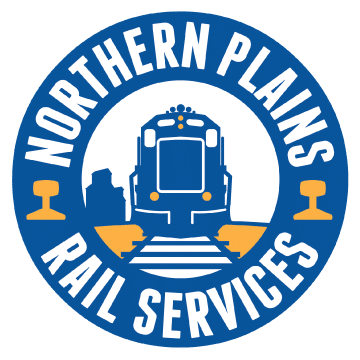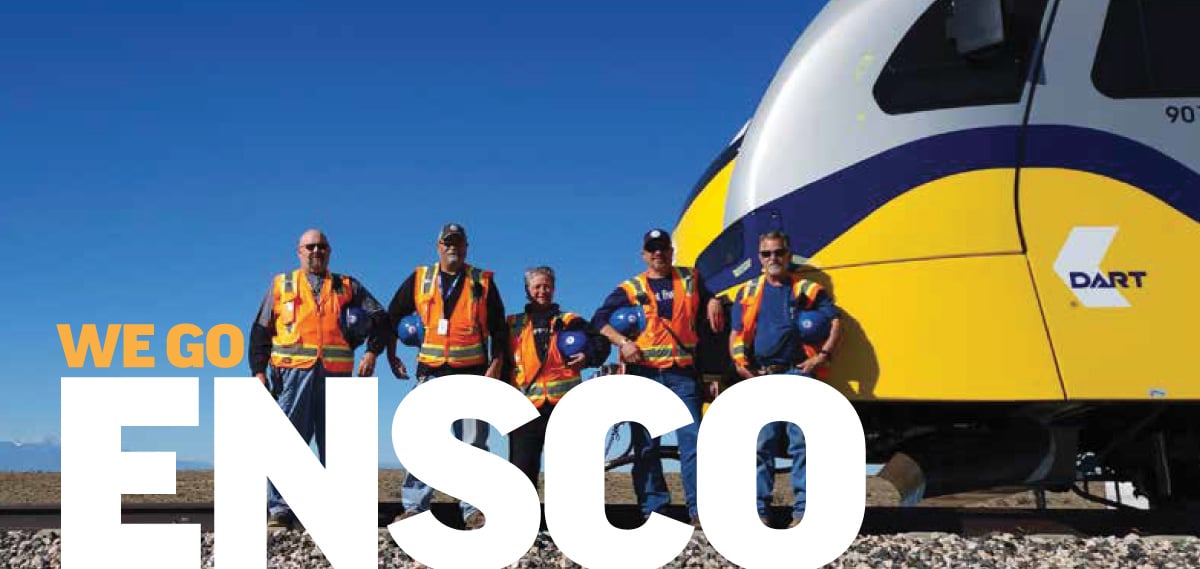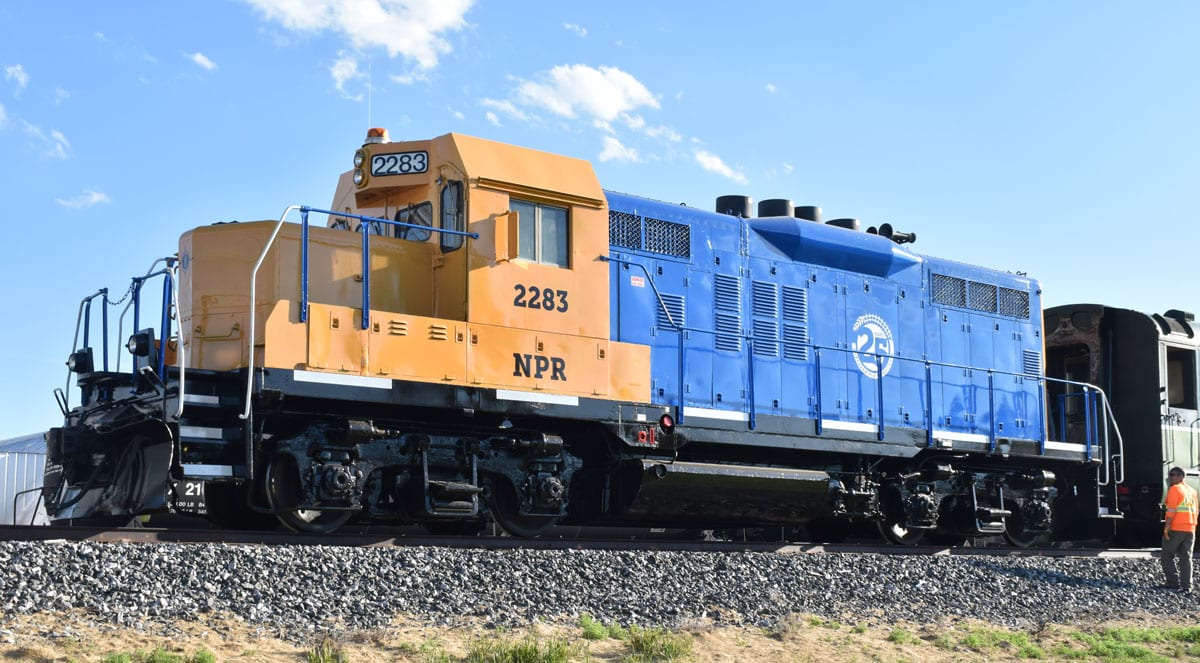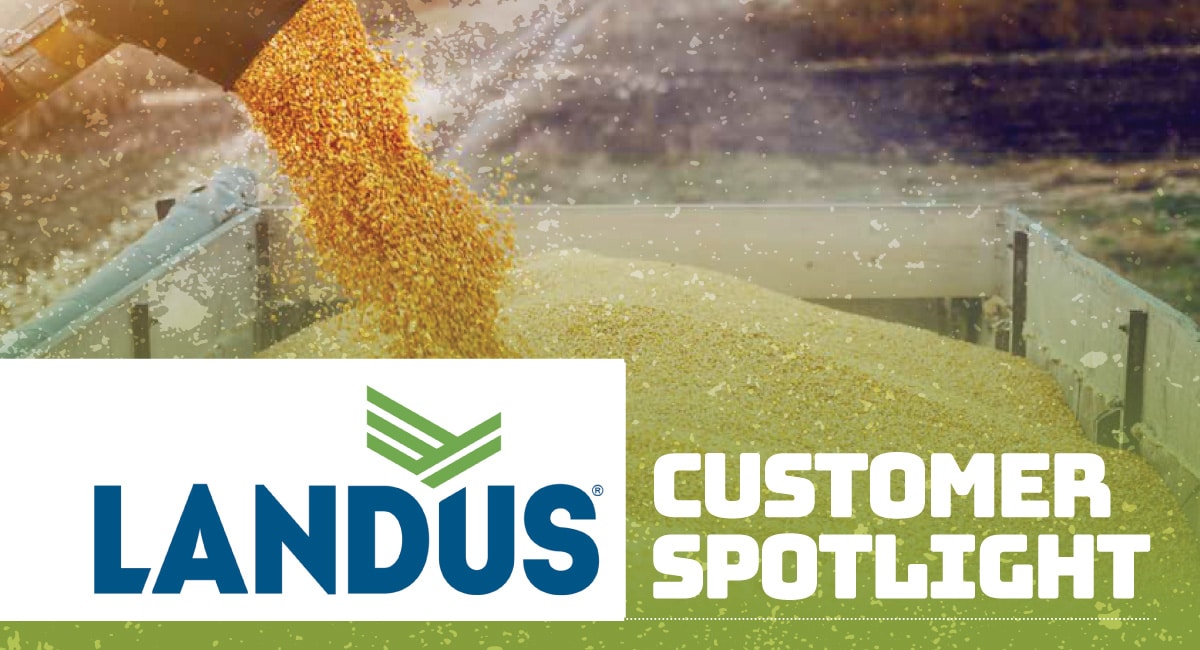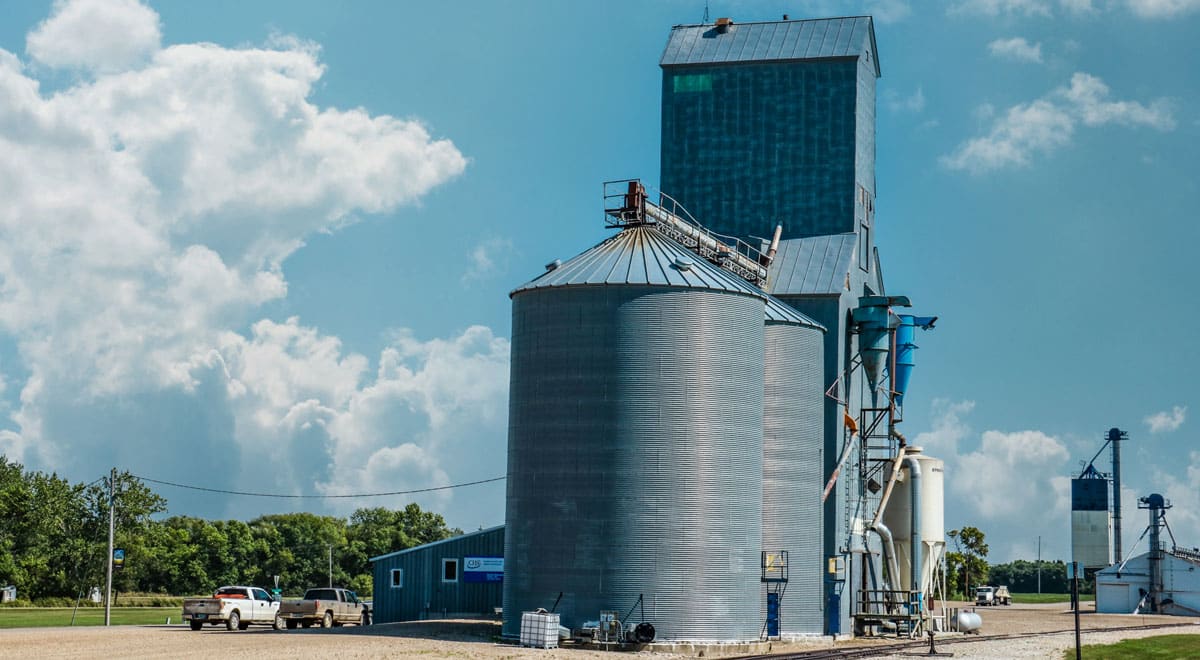
Growing Together: Partners in the Rail Freight Supply Chain for a Quarter Century
CHS is a diversified global agribusiness cooperative owned by farmers and local cooperatives across the United States. First organized in 1929, CHS employs more than 10,000 dedicated people around the globe who provide its owners and customers with a strong, efficient supply chain, access to global markets, and products and services for agricultural businesses and rural communities.
In the upper Midwest, CHS operates retail fuel stations and crop input services, supplies seed for crop production, and facilitates transportation services for off-farm products through an efficient grain elevator network. “We have a critical supply chain partnership with CHS,” said NP’s Brock Lautenschlager. “Starting with the Northern Plains Railroad, we’ve also now moved towards providing value added services to CHS in several key areas.”
Justin Cauley, director of transportation for CHS, has an important role in ensuring CHS is optimizing its freight supply chain – allowing the company to stay competitive and offer growers what they expect in terms of wide market access for their products. “It’s critical to have partners like NPR to help us move increasing grain supply safely through our supply chain to meet global customer expectations at competitive rates,” remarked Justin in a recent discussion with NPR’s Lautenschlager and Shawn I. Smith. “The large shuttle train facilities, such as our recent build in Wiley, North Dakota – plus those including Devils Lake, Calvin, and Warren, MN – rely on the continued transportation service packages that NPR, together with Canadian Pacific, offer to the agricultural marketplace.”
It’s critical to have partners like NPR to help us move increasing grain supply safely through our supply chain to meet global customer expectations at competitive rates
“In 1998, one year after NPR’s inception, Cenex and Harvest States merged to become CHS. Since then, we’ve watched the U.S. grain gathering network evolve from the smaller single car shippers to the large shuttle train origins we see today,” remarked NP’s Smith. “As a short line, we’re nimble enough to serve the traditional 25-car block facilities, however our business has really evolved with CHS, as spotting and pulling loads of 110 cars plus from the larger facilities is really our norm today.” This fundamental change certainly represents the single largest evolution that has occurred in the history of CHS and NPR’s twenty-five-year relationship. “It has meant change in the way we do things on both sides. CHS now has its own locomotives to help load trains, and maintains significant amount of its own industry track to do so. On our part, Todd Gullickson and his NPR transportation team has had to become adept at operating longer, heavier trains, with an eye towards safety and efficiency in getting them over the road and exchanging the traffic seamlessly with CP.”
Justin makes a key point in that it’s not only the railways and grain handling facilities who are under pressure to do things better, faster, and bigger. “Growers have gone big as well. They expect us to take away a large crop faster than ever before. There is significant demand from the farmer for grain companies to receive these large crops in a small window in order to get out of the field faster,” remarked Cauley. “That’s the dynamic we live in today. And down the supply chain, for example – high demurrage rates at port facilities are a normal consideration today, and it becomes even more important for efficiency and speed to be key in moving products from the heart of the Midwest to the demand centers in the Far East.”
It is those far East markets of Asia and Southeast Asia in particular that are growing in predominance for the farm community in North Dakota and Minnesota. As the middle class grows in these regions, there is expected to be increased demand for north American agricultural production.
Beyond our short line operations, Northern Plains has had the pleasure of working with CHS in recent years, providing operational and switching services at its canola crushing facility in Hallock, MN. “Now with NPR’s new car repair facility available in close proximity at Grand Forks, we would hope to take advantage of this close geography when we plan tank car repair work,” said Cauley. “In addition, we’ve appreciated not only being a customer who has purchased and leased locomotives from NPR – but the scheduled and emergency repair services that have been offered to help keep our production moving. More recently, we’ve relied upon Northern Plains Rail Training to help us with increasing the level of knowledge of those who are inspecting our track and working around rail equipment.”
Looking at the next 25 years, we see the agricultural and energy industry working even closer together on developing more efficient fuels.
As NP’s Lautenschlager remarked, “It’s so important for a shipper like CHS to understand ETAs on train service when planning labor and inspections of trains. When trains will arrive and depart, weather conditions, or any expected labor issues all have a big impact on a grain shipper’s supply chain. That’s why we at NPR work every day to deliver, as we do understand that reliability and communication are paramount.”
“We are excited about our future in the northern Midwest” remarked Cauley. “Looking at the next 25 years, we see the agricultural and energy industry working even closer together on developing more efficient fuels. We will be pushed to be more energy efficient; perhaps that means even longer trains – and for example, using automation like remote control to load them. One thing that won’t change is our focus to always do better.”


